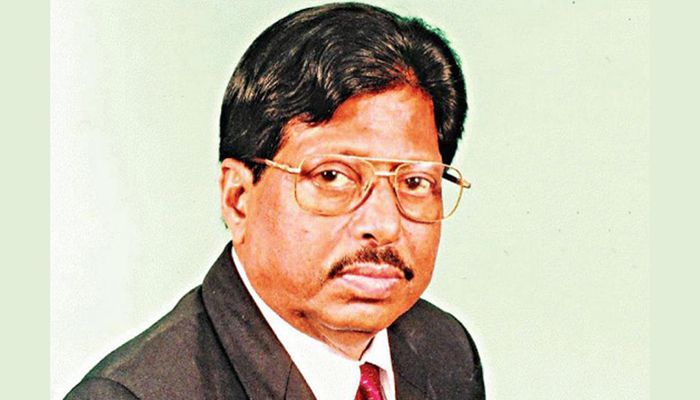
Afsan Chowdhury
Publish: 11 Sep 2023, 05:23 pm

Legendary singer Abdul Jabbar || Photo: Collected
"Would you write a little about singer-artist Swadhin Bangla Betar Kendra's music warrior, Abdul Jabbar? You write about the old days. I read them, I like it. Thank you." I was quite surprised to receive the phone. Searching the newspaper, I saw that more or less many people have written about him, but none of them are detailed—this is the rule of media and memory. At some point, everyone forgets. But thanks to YouTube, and Facebook, we found his songs. How is Abdul Jabbar?
*
I am a person from the days of radio. Everyone had a radio in our time. This means everyone listened to three stations. "Dhaka Betar Kendra": for songs, news, and talk. 'Akashvani Kolkata' for music. And 'Radio Ceylon' for Hindi songs. Music plays a big role in our lives, just like everyone else's. And there was cricket commentary. Everyone has heard both English and Bengali since childhood. There wasn’t any opportunity to watch the match. There was a commentator from India named 'VG', who used to do it very badly so everyone would enjoy listening to it.
*
Later, there was a program at the Dhaka Radio Center that was government propaganda. Named 'Buniyadi Gonotontrer Ashor (Basic Democracy Forum)"—probably from 1962 onwards. There used to be a play; I can't remember the name, but the characters were very popular; Especially the character named 'Majid's mother'. Now it’s almost lost in the memories. One night in the 60s, I heard the music of a new artist in the era of such radio. I remember the song, "Mon Re, Ei Vober Nattoshalay/Manush Chena Dai/Re Manush Chena Day (Oh mind, in this world of God, it’s too hard to identify people)." Abdul Jabbar appeared.
*
I was only 10 or 11 years old back then, but I felt it was a great song. My parents and one uncle who was in the room all appreciated the song. The rhythm he had on 'Mono Re' is still audible. I became a fan from that day on. I used to learn music myself, so I liked it better. He became popular very quickly or was already. The cinema was not far from the radio. And one day he became one of the lead singers.
*
Abdul Jabbar was born on November 7, 1938, in Kushtia district. Passed Matric in 1956. He started singing on the radio in 1958. He sang for the first time in the film in 1962. He performed on BTV since 1964.
*
He made his movie debut in 1964 with the film “Sangam” directed by Zaheer Raihan. The song 'Tumi Ki Dekhecho Kovu' in Satya Saha's composition in the 1968 movie 'Etotuku Asha is very popular even today. In the same year, he had a huge hit song 'Pich Dhala Ei Pothtare Valobeshechi' composed by Rabin Ghosh in the film 'Pich Dhala Poth'. Now, however, no one can walk through the pitched road due to traffic jams, it is occupied only by motorists. How a city changes!
Perhaps his most popular song is 'O Re Neel Dariya' sung by Alam Khan in the 1978 film Sareng Bou. The quality of the song is that he transcended the age of radio into the age of the Internet, advertising rural phones. He has been singing since more than 65 years ago, and many people still listen to his songs. like me The three songs 'Tumi Ki Dekhecho Kovu Jibober Porajoy', 'Salam Salam Hazar Salam' and 'Joy Bangla Banglar Joy' were among the 20 best Bengali songs of the year organized by BBC Bangla during the month of March 2006. He has many Achievements, establishment, and recognition, in his bag.
*
Many songs like 'Salam Salam Hazar Salam', and 'Joy Bangla Banglar Joy' broadcasted from Swadhin Bangla Betar Kendra have been heard by everyone in the country. Among those who joined that radio station, Abdul Jabbar did so at great risk. Because it would have continued even if he didn't go. He was not active in politics, but felt the need to go so he went. His presence gives that radio station a special status. We heard his name from everyone we asked while doing research. He went from a big man to a man of history.
*
Abdul Jabbar received many honors, as he deserved. The song 'Ore Neel Dariya' is not only a song but also a name of legend. But at this mature age, it seems that many people, especially artists and poets, have some emptiness. Are there any difficulties that we hide or pass over because we don’t want to know? Is there any need to know? Maybe not, but we don't want to learn much.
Maybe that's good. But I know that, like many artists, he had trouble in his heart, and his road turned in different directions. Maybe, maybe not. But we should know the whole thing. Then I will understand better why he could sing those songs with so much love, why he went to the radio of the freedom fighters, and many more things!
Our singer, our warrior, and our legend, Abdul Jabbar, salute you.
Subscribe Shampratik Deshkal Youtube Channel
© 2024 Shampratik Deshkal All Rights Reserved. Design & Developed By Root Soft Bangladesh